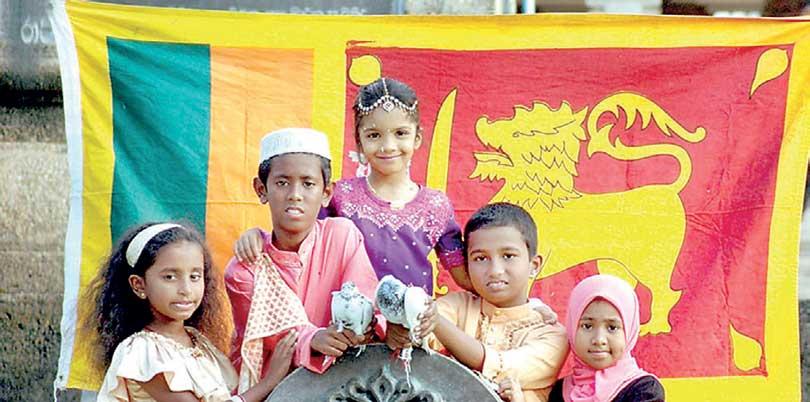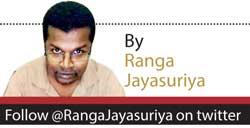Dangerous ethnic politics in monopolising the national anthem


President Gotabaya Rajapaksa won the election to the highest political office in the land without the help of the Tamil voters. But on the day of swearing-in, he pledged to be the president of all citizens of the country. His first month in the office has thrilled his supporters and reassured many of his detractors. Mr. Rajapaksa, not a traditional politician, performed better than his elder brother, the former president Mahinda could have, whose proclivity to cult making that he eschewed through his first presidential decree.
He has sought to revitalise the ill-performing public service with a more proactive, but less publicity-seeking approach, making ad hoc visits without TV cameras. His government has so far handled adroitly the foreign relations, including a controversial Swiss claim that one of its local staff members had been abducted.
But, now, his government seems to think that Sri Lanka can be governed without Tamils – or at the expense of Tamils. Public Administration Minister Janaka Bandara Tennakoon has announced that the Tamil version of the National Anthem which was sung since 2016 would be dropped from the independence day ceremony this year.
“We only have one national anthem.There is no reason to sing it in two languages. This creates unnecessary divisions among communities,” Sunday Times quoted him as saying.
The government has not denied, though Co-Cabinet Spokesman Ramesh Pathirana said, that the issue had not been discussed in the Cabinet.
The government has not denied, though Co-Cabinet Spokesman Ramesh Pathirana said, that the issue had not been discussed in the Cabinet.
Minister Tennakoon might be enjoying his fifteen minutes of fame in the news waves. But surely, he has not fully grasped the gravity of his folly.
Singing the national anthem in Tamil is not causing ‘unnecessary divisions’. It is unifying the communities, it gives Tamils a sense of belonging in the country. What is causing divisions is depriving them of that opportunity, further more, five years after they were happily singing it in the language that is most intimate to them.
Other fellow travellers have resorted to equally lopsided logic.
Singing the national anthem in Tamil is not causing ‘unnecessary divisions’. It is unifying the communities, it gives Tamils a sense of belonging in the country. What is causing divisions is depriving them of that opportunity, further more, five years after they were happily singing it in the language that is most intimate to them.
Other fellow travellers have resorted to equally lopsided logic.
One for that matter, Rear Admiral Sarath Weerasekara says each time the national anthem is sung in Tamil, it is violating the constitution.
However, legal clarity on the issue was established long ago. After the national anthem was sung in both languages at the independence day celebration in 2016, three fundamental rights petition were filed before the Supreme Court challenging the decision. Later, on November 16th, the same year, after considering submissions by the Attorney General and the intervenient petitioners, a three-judge bench comprising then Chief Justice Priyasad Dep, Justice K.T. Chitrasiri and the late justice Prasanna Jayawardena refused leave to proceed and dismissed the petition, upholding the right to sing the national anthem in Tamil.
The Attorney-General argued that Articles 18 and 19 of the constitution recognises both Sinhala and Tamil as the official languages and national languages of Sri Lanka and that singing the national anthem in Tamil did not violate the constitution.
Another half-baked assertion is that the national anthem in India is sung in one language, and hence Sri Lanka should follow suit. The national anthem in India is written and sung in Bengali, a minority language, not in Hindi, one of the two official languages at the national level.
A better explanation of the government decision is that it is resorting to appease insular Sinhala Buddhist fringe nationalism that had always stood behind Mr. Rajapaksa’s presidential campaign.
Most vocal advocates of this ideology are borderline bigots (if not full-blown ones), whose notion of Sri Lanka is antiquated and out of place. Their appeasement comes at the expense of the minorities. The first step seems to be reversing even the most well-meaning measures of ethnic integration. Both bigotry and political opportunism are at play.
That is a dangerous gambit. Sri Lanka had paid dearly for previous blunders of the similar kind.
If this one is successful, it would be remembered as another devious deed that pushed the Tamils to a corner and harvested another generation of Tamil resentment. It also throws a lifeline to the vitriolic anti- Sri Lankan campaign of fringe Tamil nationalism
As my fellow columnist D.B.S. Jayaraj rightly noted last week, it is the moderates of both sides who feel agonised by the decision. Extremists on both sides are celebrating deep down in their hearts. Fringe nationalism and extremism of all kinds are mutually reinforcing. Sadly though, the main opposition UNP has other pressing priorities. In fact, defending its two former ministers who are now facing legal action is a lot more difficult than defending the commonsensical logic of singing the national anthem in both languages. That the country’s main opposition party is a meek and self-serving machination that hesitates to speak up for a community that voted for it overwhelmingly would further erode the trust of Tamils in the Centre.
There will also be unexpected externalities of this short-sighted decision. This would harden the public opinion in Tamil Nadu, where the political parties have aired concerns. Mr. Modi who is under siege over the Citizenship Amendment Act might take heed. Moderate sections of the diaspora would also feel the reconciliation process is being undone by the current administration.
President Gotabaya Rajapaksa can do a lot better. He should use his political capital to leapfrog economic development, modernize education system and provide clarity and ease for investment. However, the mandate of the sort of Mr. Rajapaksa could turn sour sooner than expected. Look no further than Narendra Modi’s India. Mr. Modi won a gravity defining second term win in the General elections in May this year. He had all that it takes to implement long-overdue economic reforms and prop up an already slowing economy. Instead, he sought to give a shot at advancing the Hindu nationalist agenda. It worked, until Mr Modi and his home minister Amith Shah miscalculated public mood and introduced the Citizenship Amendment Act with its overt anti-Muslim bias.
India is now in turmoil. Mr. Modi is more likely to be remembered as the man who blew up India’s economic opportunity than the business-friendly go-getter who he projected himself as.
President Rajapaksa is facing a similar dilemma. If he resorted to monopolise the national anthem, that may not bring crowds to the streets at the moment. But it would fuel a toxic ball of resentment, and somewhere down the line, it would explode.
President Rajapaksa is facing a similar dilemma. If he resorted to monopolise the national anthem, that may not bring crowds to the streets at the moment. But it would fuel a toxic ball of resentment, and somewhere down the line, it would explode.
